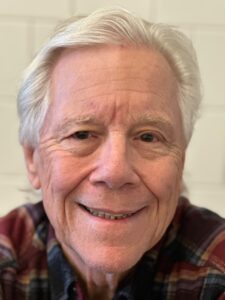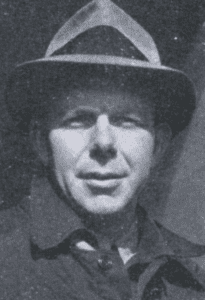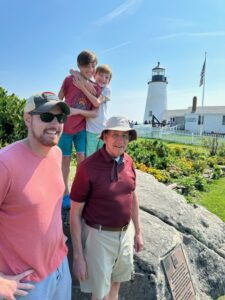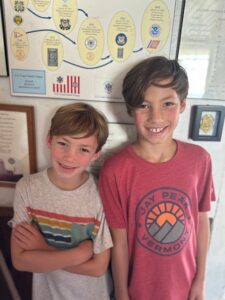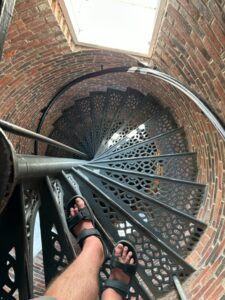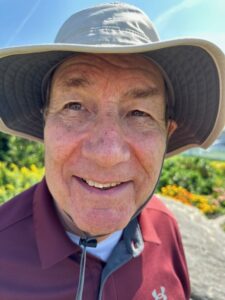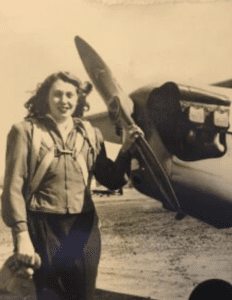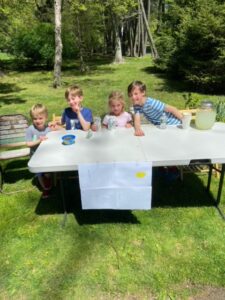When someone asks, “What’s it like to be a grandpa?” the response is usually “Fantastic! The best thing ever.” I’ve spoken with men who jumped for joy in the middle…
When someone asks, “What’s it like to be a grandpa?” the response is usually “Fantastic! The best thing ever.”
I’ve spoken with men who jumped for joy in the middle of a restaurant, or wept openly, when they heard they were going to become grandpas. The whole world changes, exploding outward in a way that the word “joy” can barely contain. Many of us thought we could never love anyone, or any single thing, as much as our kids. Grandkids, however, take the cake. Suddenly, the circle of those we care deeply about expands. Love expands. And the more grandkids we are lucky to have, the larger that circle of loving care becomes.
But as with all things tied to this thing we call love there is complexity, and sometimes heartbreak.
With each new addition to our family the possibility of pain and sorrow grows. The yin and yang of grandparenthood are inseparable. We all know this is what we signed up for, which doesn’t make it any easier.
The need to learn about the full range of grandpa experiences led me one fall day to a coffee shop in Newton, Massachusetts, to talk with Eric Behr. I’d heard a little of Eric’s story from my brother, Nick, who conducted Eric in a gospel group called the Mystic Chorale. What Eric shared with me that day added a new dimension to my understanding of what it truly means to be a grandpa.
Eric, 76, is lean and fit, with a lined and thoughtful face, grey hair, and a melodious baritone voice that no doubt was a great addition to my brother’s chorus. Eric is the father of three, grandfather of six, a successful folk musician and newly retired accountant. I started our conversation at the beginning, diving into his family history, seeking to find the influences that helped shape him into who he is today.
Eric never knew his grandfathers (although he did recollect that a brother of one grandfather survived the Titanic; that’s a whole different story that may require its own book). Eric’s father was outgoing and charismatic, a frustrated actor who finally found his stage as a diplomat, serving as the first liaison between the State Department and the Joint Chiefs of Staff. Quiet by nature, Eric’s mother absolutely hated being a diplomat’s wife.
The two things Eric’s parents had in common were that they were listed in The Social Register, and both drank heavily.
Eric described his dad, Frederic Howell Behr, as a “world-class womanizer,” made worse by the fact that he flaunted his infidelities. “He rubbed my mother’s nose in it.” On more than one occasion, Frederic took his mistress on an overnight trip on the family yacht, and brought Eric along.
“My parents were constantly screeching at each other,” Eric said. When punishment was meted out to Eric by his parents, his dad used a belt, his mother a silver hairbrush.
“My childhood,” Eric said, “was completely overcome with anxiety.”
Eric’s father died of lung cancer at the age of 41, when Eric was just 14. For Eric, this was a major rupture at a critical time of his life. Deeply flawed as his father was, the man still had a tremendous influence on him. “So, I walked away from God. I knew that God existed and God was supposed to be good, and when God took my father that was the end.”
Bereft of spirituality, and inheriting his parents’ love for booze, Eric struggled with addiction for decades. Attending college at Goddard with fellow students he described as “brilliant fuckups,” Eric delved into a life of alcohol, drugs and cigarettes. But Eric also did everything possible to turn his life around. He became committed to rigorous 12-step recovery programs in 1986, and within a year he kicked alcohol and drugs for good. Eric became a musician, co-founded and grew a successful accounting firm (what Eric calls his “side gig”) got married to his lovely wife, Nancy, and together raised their kids.
For Eric, the trauma of his childhood has informed his loving—and sober—approach to being a good parent and grandparent.
He’s been there for his grandkids’ soccer games and all kinds of family gatherings. There is no screeching in his long marriage. And every new grandchild to appear on the scene has added a new layer to his happiness. His granddaughter, Molly, was born in 2017.
One sunny summer day in 2018 when the family was vacationing in Martha’s Vinyard, Molly’s mother, Cassy, noticed that her daughter was walking with her head tilted to one side. A doctor said the issue was likely muscular, but after further tests they heard the kind of news that every parent dreads. It was not just any cancer, the disease Siddhartha Mukherjee called The Emperor of All Maladies. Molly had a rare form of brain tumor, an anaplastic ependymoma.
Surgeons were able to remove ninety-eight percent of the tumor, but the remaining two percent was wrapped like a serpent around Molly’s brainstem.
No treatment known to mankind in one of the best hospitals in the world could solve this problem. The doctors could offer no hope for a cure, other than potentially keeping Molly alive long enough for new treatments to be developed. Eric and his family were of course devastated. It’s one thing to lose friends or family who are older to disease, but the prospect of losing a child is nearly unbearable. Some people give up. It can be too easy to accept what doctors predict. But for Eric and his wife, the crisis was a clarion call to dig deeper and find a way to break down the barriers to what’s possible.
“Around the time Molly got sick I started listening to a Buddhist nun, Pema Chödrön, said Eric. “She got me thinking about energy—healing energy—and energy in general. Because when you break it all down to particles, that’s all we are. Energy. And it seemed to me that was my path.” Nancy enrolled in a school of energy medicine, and soon Eric joined her to learn all they could about healing energy practices. At the same time, Nancy—an ordained pastor with a degree from the Harvard Divinity School—began tapping into her network to let people know about Molly and pray for her.
The effort started out small, but as word spread the circle grew and before long thousands of people were praying for Molly. Close family. Friends of friends. Complete strangers.
Molly underwent thirty-three rounds of proton radiation followed by metronomic chemotherapy. The goal of the chemo was simply to keep the tumor from growing. But when the follow-up scans were done, Molly’s doctors where astonished to find the tumor had actually shrunk. “They were stunned,” Eric says. “They just didn’t understand how that happened.”
Eric and Nancy, however, did understand. “You’ve seen pictures of the Sun with a gazillion rays, right?” Eric asked. “Each one of those is a way in and out of God.” A man who had walked away from God at fourteen had found a new pathway in his 70s towards deep spirituality, a foundational energy with extraordinary power. Today, Eric starts each morning with a comprehensive program of yoga, meditation, reading and prayer.
Five years after Molly’s diagnosis she has defied all expectations. The tumor has not grown. And yet challenges remain. In July of 2022, Molly came down with a pneumonia which very nearly took her life. During her month-long hospital stay, bloodwork showed that Molly had developed chemotherapy-induced acute myeloid leukemia. Once again, the family persevered. Molly received a bone marrow transplant from her mother. After more months in the hospital, Molly finally came home in the winter, living in a virtual bubble to avoid infection.
In November of 2023, happy and smiling and for all the world seeming normal and healthy, Molly went back to school.
Before Eric and I parted ways, I asked him the question I ask of all grandpas. What’s the number one thing? The essential wisdom he’d learned from his long life that he wanted his grandchildren to understand. For grandpas, this is no small matter. After all, grandpas don’t live as long as grandmas, leaving us an even briefer time window to impart vital wisdom. Many of us may never have a chance to sit down and talk with our 18-year-old grandkids. I asked, “If you picture yourself years in the future and you’re talking to Molly and your other grandkids, what would you say?”
Eric thought for a moment then said, “Trust yourself. Trust your instinct. Your life is your responsibility. It doesn’t help you or anybody to blame the way you’re feeling on somebody else.”
When I probed deeper, Eric explained that the need to trust our instincts and take responsibility is driven by his greatest fear, the thing posing an existential threat to our grandchildren. “The childhood they are going to have,” Eric explained, “is much briefer than the one you and I had. And that’s predominantly driven by the Internet. I’m scared to death of the crap that’s available on computer screens.” For Eric—and I suspect for many grandparents—it’s startling to realize that we worry more about toxic media than toxic cancer. What does this say about the direction of our modern hyper-technology-driven world?
Today, Eric spends lots of time with his grandkids, practicing mindfulness to be fully present. All of his storied ancestry and life experience is built into the fabric of his being. It’s a quilt comprised of many individual ideas and values that add up to a larger vision. It’s loving, loyal and steady. It’s sober and powerful and spiritual. There’s joy, laughter, pain. A gospel chorus that gives you chills. A map for doing the right thing. A soul that will always find ways for family to survive, and never give up trying. No matter what awaits, there’s always a lifeboat available somewhere in the starry night. You just have to pray.
Publisher’s Note: Eric’s family created this GoFundMe page to raise money to cover the high cost of Molly’s medical care. I encourage you to share the story and the GoFundMe link so we can help Molly live a full life. Merry Christmas and Happy Holidays to all.

